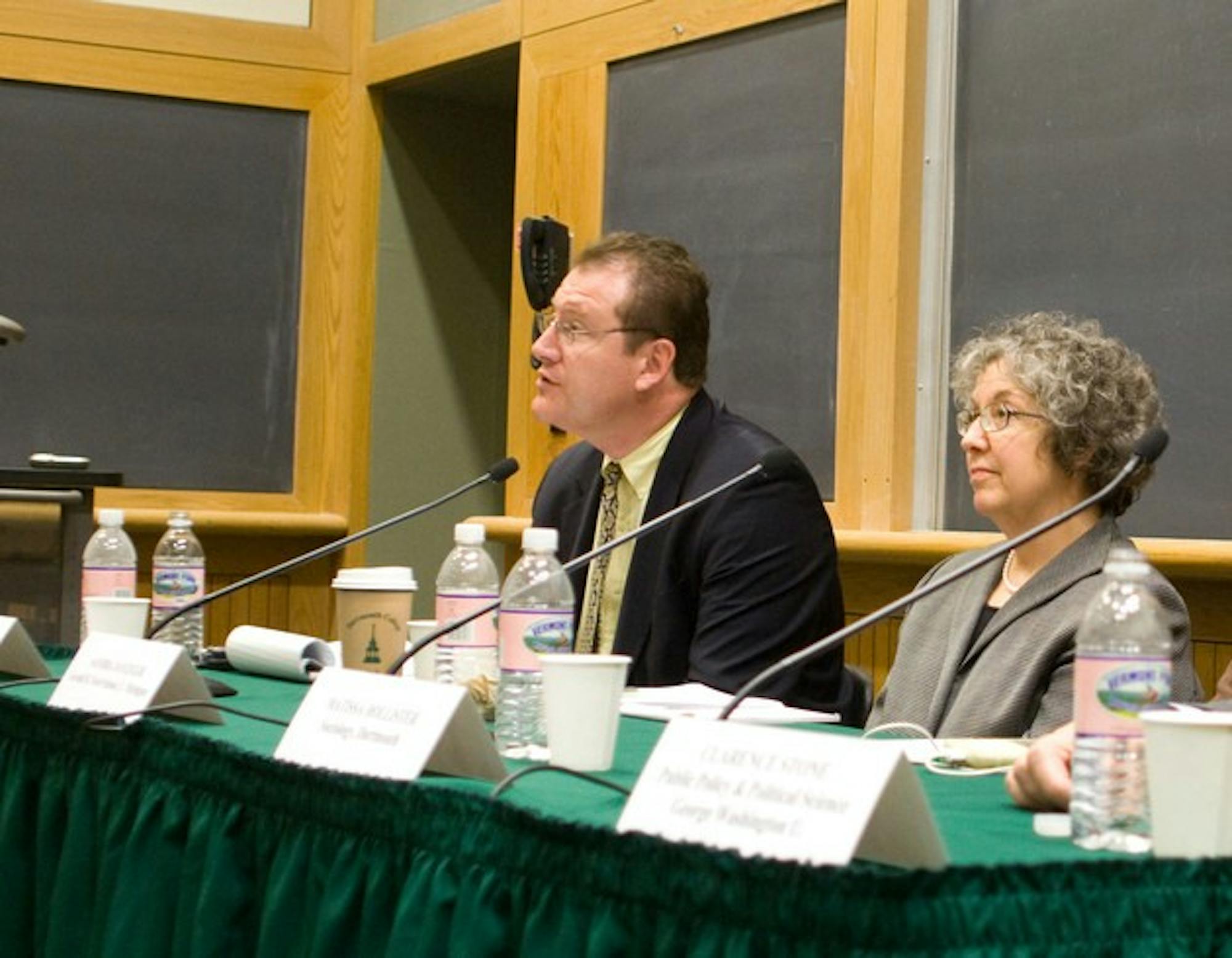Panel speakers included Sandra Danziger, professor of social work and public policy at the University of Michigan, Matissa Hollister, a sociology professor at Dartmouth and Clarence Stone, professor of public policy and political science at George Washington University. Each participant was selected for his or her unique perspective on the issue of poverty, according to Peter Burns, a research associate at the Rockefeller Center and the panel's moderator.
"We put the panel together to give eclectic versions of a very complex story," Burns said in an interview. "We wanted to approach it from a number of different levels from sociology, social work and political science."
While the poorest individuals in the U.S. have experienced an increase in income, the gap between the richest Americans and the rest of the population has widened, according to Hollister.
"Even though we think that poverty is about distributions of income at the bottom, I think that in terms of social policy issues, we need to continue to be concerned that we're still not in a period of shared prosperity," Hollister said.
Individuals must also be concerned about the perception of poverty, Stone said, adding that conceptions of the poor have evolved.
"For a very long time we tended to think of the poor primarily as a problem-laden clientele in need of receiving services," Stone explained. "Over time, we've come to think of them as a group that possesses assets and capacities, and indeed we should focus on that -- how to enhance the capacities and support the assets."
Welfare should be viewed as a social investment, he said, emphasizing the importance of projects that support impoverished youth. Investments in education and after school programs would have long-term effects, such as reducing future spending on prisons, Stone said.
"Look at how much money it costs to maintain someone in prison," Stone said. "This is a very expensive way for society to operate."
Danziger agreed that the current welfare program in the United States is inadequate. The 1996 welfare reform bill increased employment and reduced reliance on welfare among single mothers, but the number of single mothers who had neither access to work or welfare increased at the same time, Danziger said.
Even after Hurricane Katrina, many people are not aware of the issue of poverty in welfare in the United States, Burns told The Dartmouth, adding that he hoped the panel would shed light on the issue.
"People need to be better educated about the extent of poverty, how poverty is changing and what welfare programs are out there," Burns said. "I think that there is a misconception of these topics, and I think it's important to have a panel like this to get people who study this topic to talk about it and educate people who are interested in learning about it."




